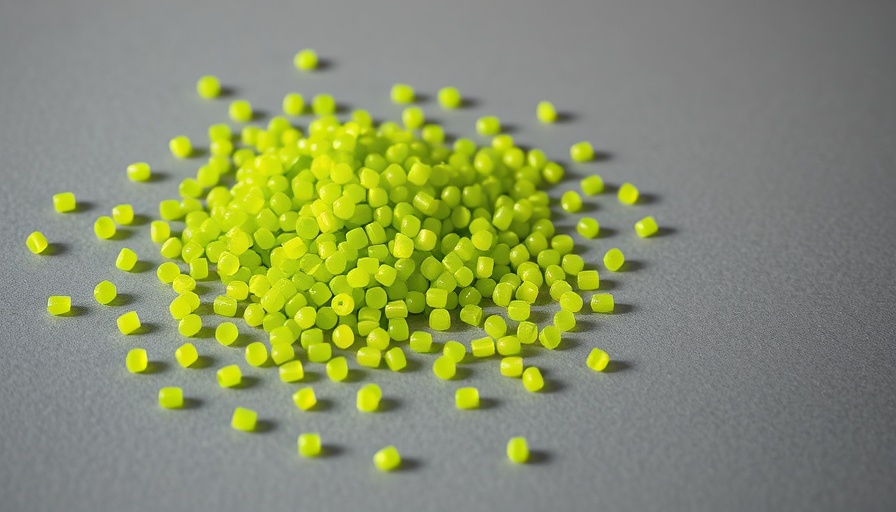
Unveiling the Hidden Dangers of Recycled Plastics
The ongoing battle against plastic pollution often emphasizes the importance of recycling but rarely delves into the complexities and risks associated with repurposed materials. Recent research from the University of Gothenburg is illuminating a grave concern: recycled plastic can leak harmful chemicals into our water supply, potentially disrupting human hormonal balance and affecting wildlife health.
Understanding the Chemical Cocktail
A recently published study in Norway revealed that a single pellet of recycled plastic could contain over eighty different chemicals. These substances are not only present as necessary additives for properties like strength and flexibility but can also include contaminants from the plastic's first use. This cocktail raises immediate questions about the safety of using such materials, especially in products that could come into contact with food or water.
The Risk of Chemical Leaching
In laboratory tests, researchers soaked these plastic pellets in water for 48 hours and subsequently exposed zebrafish larvae to this water. The results were alarming; the larvae showed alterations in their metabolic rates and hormonal balances. Azora König Kardgar, lead author of the study, insists that even brief exposure can have detrimental effects, suggesting that the risk posed to aquatic life—and subsequently to humans who depend on these ecosystems—cannot be overlooked.
Linking to Broader Health Concerns
Many of the chemicals identified in recycled plastics are known disruptors of the endocrine system, which regulates hormonal balance in humans. Long-term exposure has been linked to reproductive issues and developmental problems in children, alongside increased risks for certain cancers and metabolic disorders such as obesity and diabetes. Professor Bethanie Carney Almroth highlights that this chemical complexity is one of the most significant challenges facing recycling efforts today.
Future Implications and Calls for Action
The impending United Nations summit in Geneva serves as a critical platform for discussing plastic pollution and its safety. Researchers urge global delegates to establish stricter regulations on hazardous chemicals in plastics. Improved transparency regarding the additives used in recycled materials could provide essential safety assurances for consumers.
Rethinking Plastic Use
This research underscores the urgent need to rethink our approach to plastic use and recycling. As consumers become more environmentally conscious, it's crucial that they are informed about the potential implications of recycled materials. Understanding the potential hazards can empower individuals to make safer choices as they navigate a market fraught with uncertainty.
Embracing Safe Alternatives
As we become more aware of the risks associated with recycled plastics, it is essential to explore alternative materials that do not carry the same potential for chemical contamination. Innovations in biodegradable plastics and sustainable materials could offer safer pathways for reducing our reliance on traditional plastics.
Ultimately, addressing the hidden dangers of recycled plastics requires a collective effort—policymakers, manufacturers, and consumers must work together to ensure a safer environment for all. By advocating for stricter regulations and possible bans on certain harmful chemicals, we can prioritize safety without compromising sustainability.
In light of the critical insights presented in this research, it is imperative for us to push for regulatory changes and support initiatives that enhance transparency and safety in plastic production and use. Together, we can take meaningful steps toward a more sustainable future while protecting our health and the environment.
 Rij toevoegen
Rij toevoegen






 Rij toevoegen
Rij toevoegen



Write A Comment